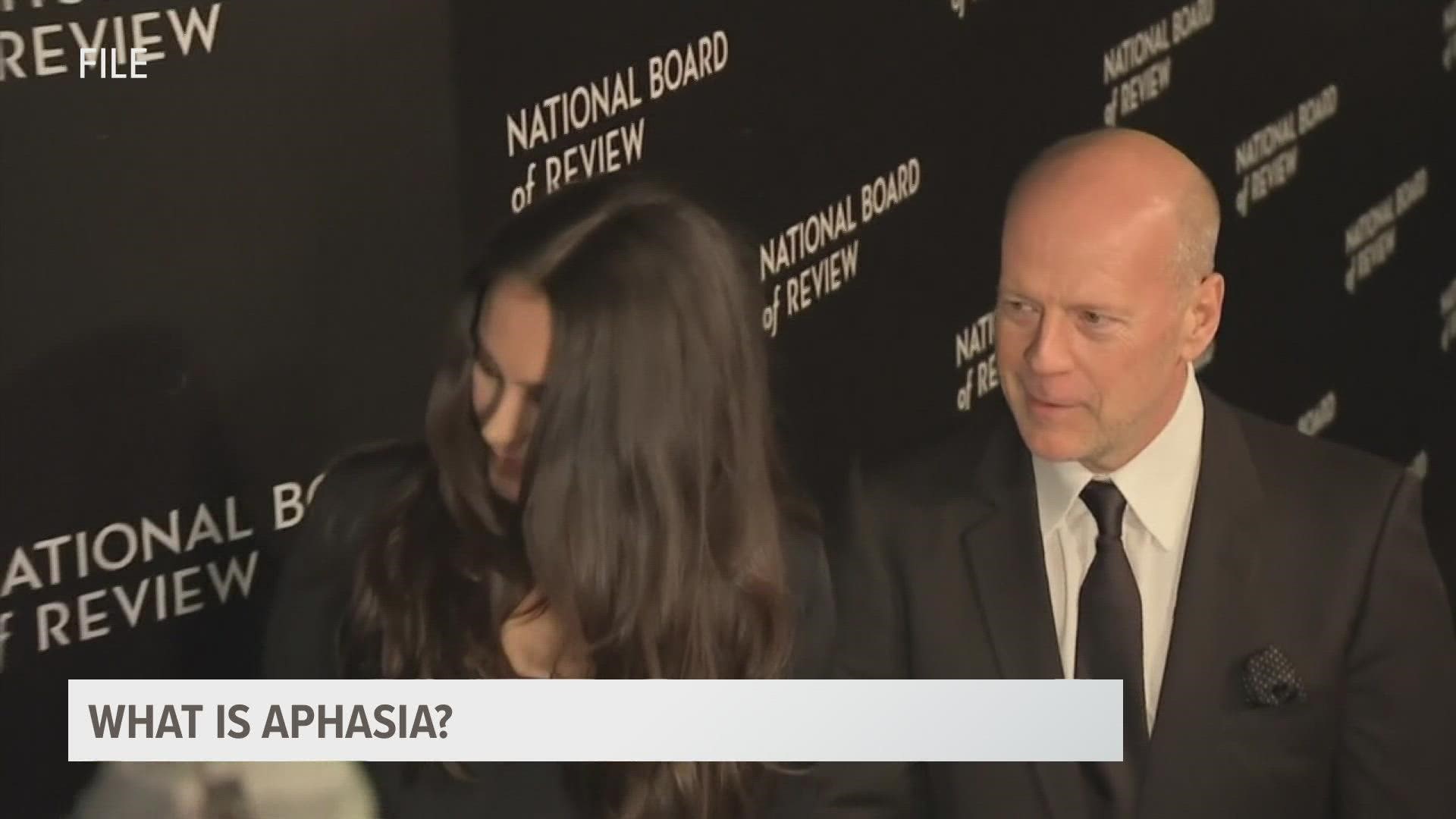Actor Bruce Willis's family announced Wednesday that he's stepping away from Hollywood. The decision to retire comes after a diagnosis of aphasia, which is a language disorder.
Michigan speech-language pathologists who treat people with aphasia say it exists on a spectrum, where people can occasionally have difficulty finding the right words to say to severe impacts on reading, writing, understanding and speech skills.
After the news of Willis's diagnosis, Dr. Katie Strong wants to rule out misconceptions about the disorder.
"Aphasia is a language disorder," she says. "It's not an intelligence disorder. People who have it are still there."
She's a faculty member, researcher and speech-language pathologist at Central Michigan University. She's worked with people impacted by aphasia for 25 years.
"Stroke is the most common type of way to acquire aphasia, but traumatic brain injury [or a] tumor, as well as other ways that are more progressive in nature can cause aphasia," Dr. Strong says.
It's estimated that there are more than two million people living with aphasia in the United States. Dr. Strong's lab, the Strong Story Lab, strengthens speech, reading, writing and understanding skills through rehabilitation therapy. She says that they work to accomplish everyday tasks that people want to get done.
"Maybe it's sending an email or text to friends, or maybe it's reading," Dr. Strong says. "It could be exercises to support practicing specific words or phrases to be able to communicate with people who are important to them."
"Sometimes I like to describe it as going to a foreign country [and] not knowing the language, not being able to read or, you know, converse with other people," Speech-Language Pathologist Jessica DeGroot says. "The person still knows what they want to say. But it's that communication with other people that's more impacted."
She works at Mary Free Bed Rehabilitation Hospital, and her department could be seeing up to 10 people with aphasia at a given time. She says living with aphasia can be frustrating.
"I was working with a lady today, and [it was] just the fatigue," DeGroot says. "We call it neuro fatigue. So, the brain just gets tired from working in overdrive that entire time."
She says they usually see improvements within a month or so of therapy, but each case is different.
"People make great gains," DeGroot says. "I think it's a lifelong process."
It's still unknown what caused the onset of aphasia for Bruce Willis.
There are resources and support groups available in West Michigan for those who need it, through the National Aphasia Association, MDHHS and the American Stroke Association.
►Make it easy to keep up to date with more stories like this. Download the 13 ON YOUR SIDE app now.
Have a news tip? Email news@13onyourside.com, visit our Facebook page or Twitter. Subscribe to our YouTube channel.

